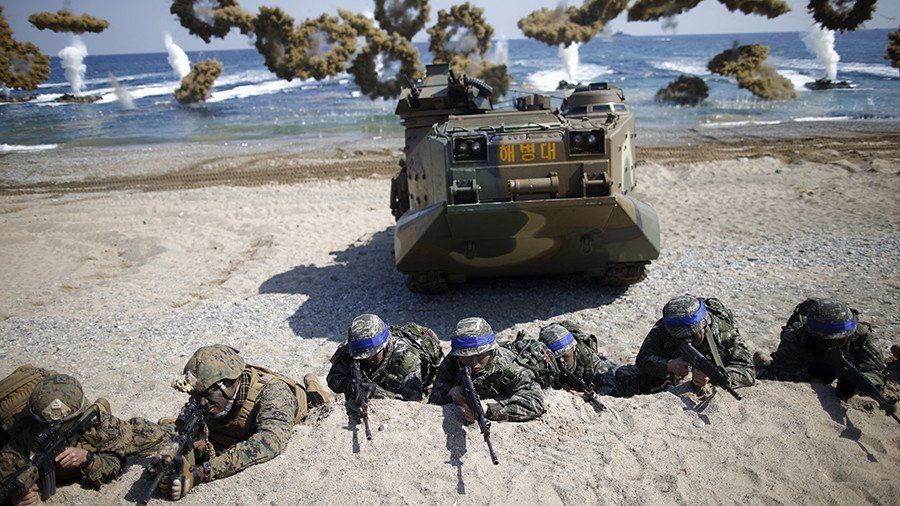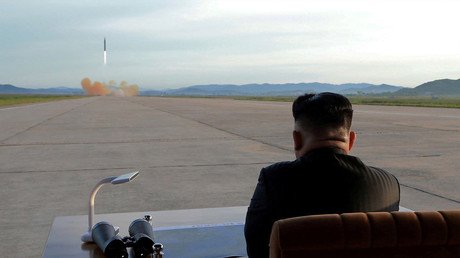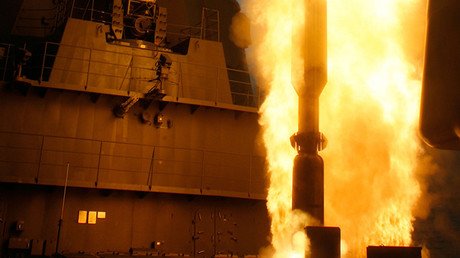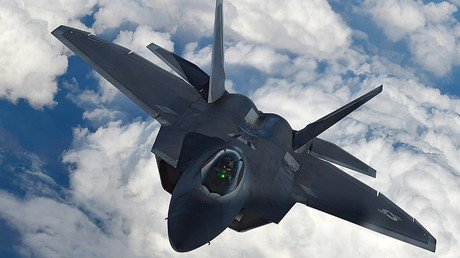US heading to war with N. Korea 'if things don't change' - Sen. Graham

The US will go to war with North Korea "if things don't change," Sen. Lindsey Graham said, acknowledging that "a lot of people would get hurt and killed." Meanwhile, Russia and China have once again urged for both sides to exercise restraint and dialogue.
"If we have to go to war to stop this, we will," the Republican senator told CNN's Wolf Blitzer on Tuesday. "If there's a war with North Korea, it will be because North Korea brought it on itself, and we're headed to a war if things don't change."
Graham stated that neither he nor US President Donald Trump wants a war, but stressed that "we're not going to let this crazy man in North Korea have the capability to hit the homeland."
When asked by Blitzer about civilian casualties that would occur in a war with North Korea, including in the densely populated South Korean capital of Seoul, Graham said: "It's not lost by me what a war would look like with North Korea. One, we would win it, but a lot of people would get hurt and killed..."
However, he stressed that "the president's got to pick between homeland security and regional stability." He noted that when it comes to that decision, "the president is picking America over the region and I hope the region will help us find a diplomatic solution."
"He is ready, if necessary, to destroy this regime to protect America, and I hope the regime understands that if President Trump has to pick between destroying the North Korean regime and the American homeland, he's going to destroy the regime. I hope China understands that also," Graham said.
His comments came just hours after North Korea fired a ballistic missile that splashed down in the Sea of Japan, according to the South Korean, Japanese, and US militaries. The Pentagon's initial assessment indicated it was an intercontinental ballistic missile (ICBM).
Responding to the launch on Tuesday, Trump said the US would "take care of it...it is a situation that we will handle." His comments were made to reporters during a meeting with Republican congressional leaders at the White House.
Moscow condemned the latest launch on Wednesday, saying it added fuel to the fire of conflict between the US and North Korea. “Another missile launch is a provocative act that triggers further escalation and moves us further away from crisis settlement,” Kremlin spokesman Dmitry Peskov told reporters. “We do condemn the launch and hope all the parties will exercise restraint, which is so much needed to prevent the situation in the Korean peninsula from going the worst way.”
Meanwhile, Russian Senator Konstantin Kosachev, chair of Russia's Foreign Affairs Committee, believes the US played a role in Pyongyang's latest missile launch by pushing it to react to its incendiary actions and speech. "It’s a fact that during the past two months North Korea has been demonstrating restraint and did not provoke the international community by any means. Pyongyang, most likely, expected the same restraint in response on part of the West, both in judgments and actions,” Kosachev said on Tuesday, adding that the West doesn't seem interested in such an agreement.
Russian President Vladimir Putin has repeatedly stressed the need for dialogue. “Ramping up military hysteria in such conditions is senseless; it’s a dead end,” he said in September. “It could lead to a global, planetary catastrophe and a huge loss of human life. There is no other way to solve the North Korean nuclear issue, save that of peaceful dialogue.”
China, for its part, expressed "grave concern" over the launch on Wednesday. Speaking to reporters, Foreign Ministry spokesman Geng Shuang said Beijing hopes all parties can act cautiously to preserve peace and stability. China and Russia have long been pushing for their proposed "double-freeze program," which would see the North suspend its nuclear and ballistic missile tests in exchange for a halt in joint US-South Korea drills.
Beijing also encouraged talks between the two sides last week, after the US re-branded North Korea as a terrorism sponsor. China Foreign Ministry spokesman Lu Kang described the situation as "sensitive" and said it would be "helpful to bring all parties back to the negotiation table instead of doing the opposite."
Earlier this month, Pyongyang ruled out negotiations over its nuclear program, citing ongoing US-South Korea military exercises in the region and Washington's "hostile policy" towards North Korea. "As long as there is a continuous hostile policy against my country by the US and as long as there are continued war games on our doorstep, then there will not be negotiations," Pyongyang's ambassador to the UN, Han Tae Song, said at the time.
The US has continued its war games in the region with South Korea and other allies, after White House spokesperson Heather Nauert rejected the plan in August. She stated at the time that the "so-called double freeze, that's not going to change. We're allowed to do it (exercises). We're allowed to do it with our ally, South Korea. We will continue to do that and that's just not going to change."















